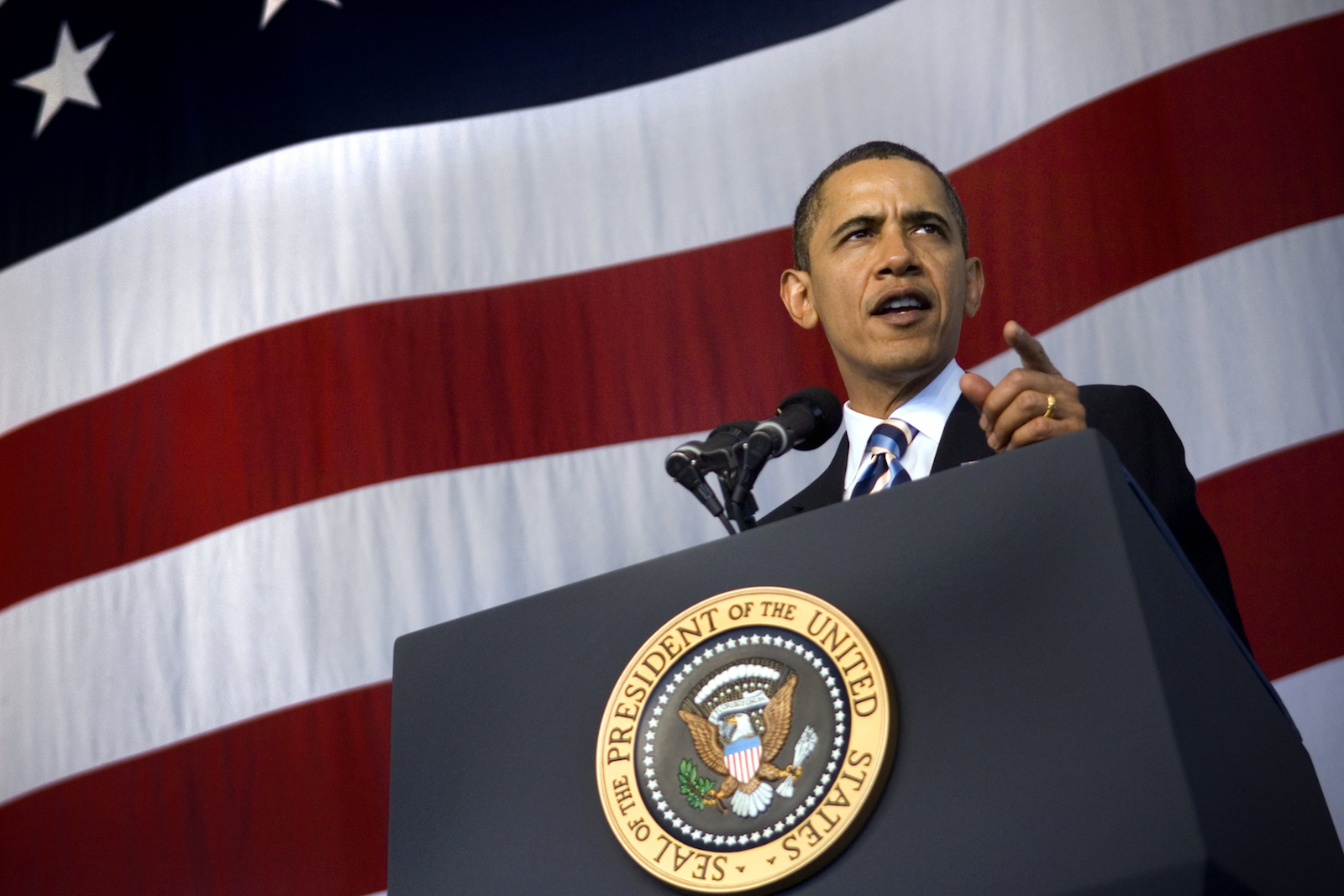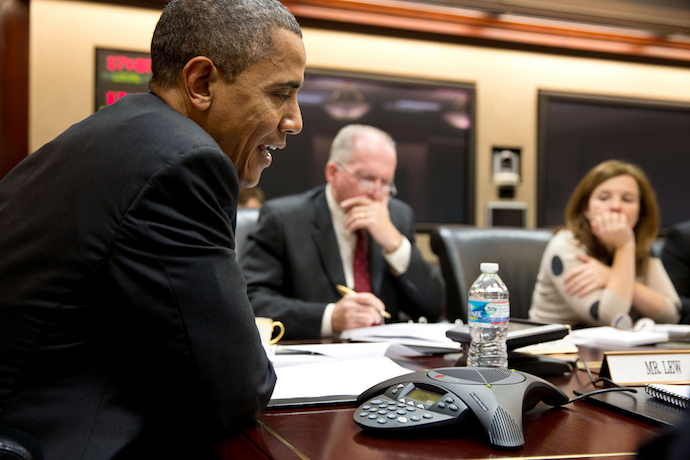
The CIA ‘Torture Report’: A Blow to U.S. Allies?
The recent release of the US Senate Intelligence Report, revealing the grotesque specifics of the CIA’s post 9/11 torture program, has created an uproar among US and foreign readers alike. The report, which details the harsh rendition methods used by the CIA between 2002 and 2006 to extract information from terror suspects, also points to the participation of other governments, who were either aware of, or directly aided the program on behalf of the US.
While the names of individual countries were left out of the report, compliments of the last minute lobbying efforts of the White House and the CIA, John Kerry still indicated prior to its release that “the evidence revealed in the Senate document could prove critically embarrassing for friendly governments […] and show that the U.S. is willing to throw partner nations under the bus.”
Kerry isn’t wrong. Despite the many redactions that sought to conceal the involvement of third parties from the eyes of the public, journalists have been able to decipher the report and expose those involved, shedding light on the involvement of a wide range of US allies in the program. In total, some 54 countries were named, including governments that Washington has publicly disavowed, such as Libya or Iran.
The UK has seen one of the harshest reactions, much to the disappointment of British officials who met with the Senate Committee 23 times since 2009 with the alleged aim of censoring sensible parts of the report and excluding any UK involvement.
Indeed, Downing Street’s announcement that the report had indeed been redacted at the request of British spies only raises further questions about the UK’s role in the interrogation of terror suspects in CIA prisons.
Allegations that British spies were present during brutal interrogation sessions has led to calls from Sir Malcolm Rifkind, chair of the Commons Intelligence and Security Committee, for the US to hand over information regarding Britain’s role in the torture program. Demands for answers to be provided comes at a particularly pressing time, as the UK and US are said to start talks on the renewal of an agreement for the US base on Diego Garcia, an atoll in the Indian Ocean where the US has been operating a naval base since the 1970s. Claims suggest that the CIA torture report is said to make references to Britain’s complicity in rendition tactics on the island of Diego Garcia, where the US is said to have installed a “black site” to jail prisoners facing torture with the “full cooperation of the UK.”
Worries remain that extending the agreement with the US will prove extremely unpopular with the British public, should it be unearthed that the island played a pivotal role in the CIA’s torture program with the knowledge of British officials.

Long list of culprits
The UK is not the only friendly ally to find itself in a tight spot after the publication of the Senate Report. Romania and Poland have also found themselves the focus of attention over their hosting of CIA “black sites.” Indeed, following the reports release, top Romanian ex-spy chief, Ioan Talpes, confirmed the presence of at least one “black site” in the country where prisoners were held captive and most likely tortured. The prison was set up during negotiations for Romania’s NATO membership, and Talpes insisted he was unaware of the goings-on at the prison, having “explicitly taken no interest” in the CIA’s activities. After showing a willingness to cooperate with the CIA, Romania received its NATO membership in 2004 and proceeded to turn a blind eye to the agency’s activities in the country.
Victory at last
The case of one Yemeni man, Mohammed Abdullah Saleh al-Asad, who was wrongfully detained and spent 480 days in different CIA black sites in Djibouti and Afghanistan between 2003 and 2005, is telling. He has since brought a case against the government of Djibouti with the African Commission on Human and People’s Rights, claiming he was wrongfully arrested in Tanzania in 2003 before being flown to a secret CIA outpost in Djibouti. There, he was questioned on his ties to Al-Qaeda, which he consistently denied, assuming that he would be sent home once officials recognized his innocence. Instead, “Djibouti became the doorway to the rendition program for him” and he was later flown to another detention site in Afghanistan. Al-Asad has provided evidence in his petition that he was subjected to torture in both places and “horribly abused” at the hands of his US captors, until his release in 2005. No terrorism charges were ever brought against him.
Al-Asad has thus far failed to win his case, but the mention of his name in the 525-page torture report has opened up new avenues to seek justice, along with the existence of previous leakages, which confirmed that several detainees of the rendition program had been held in secret CIA locations in Djibouti.
As I’ve written before, Djibouti is a key US ally in the Horn of Africa and the “epicenter of America’s drone shadow war launched in the aftermath of 9/11.” Under the leadership of President Ismail Omer Guelleh, the country will likely find itself in quite the pickle, as it tackles reports of its involvement in the CIA program while also fending off accusations at home over its poor human rights record. A country with less than 1 million and a poverty rate of 75% according to some estimates, the population largely suffers from lack of adequate education, healthcare and water, while Guelleh has systemically crushed political opponents. Djibouti consistently denies its involvement in the CIA program in spite of evidence that the Obama administration, as late as 2012, “reportedly continued to render suspects to Djibouti for short term detention.”
Whether Djibouti, Romania, or the UK, it is becoming increasingly clear that the release of the long awaited Senate Committee torture report has created waves far outside the beltway. There is no doubt that “the cooperation of countries all over the world […] was central to the operation of the U.S. rendition, secret detention, and torture program,” writes Margaret Satterthwaite, professor of New York University’s Global Justice Clinic and al-Asad’s attorney. Even if these countries’ engagement in the program was done with the utmost secrecy, the report and its gruesome details confirms Barack Obama’s fears that “these techniques did significant damage to America’s standing in the world and made it harder to pursue our interests with allies and partners.” Needless to say, future US security collaboration, whether in Europe, Africa or the Middle East, will likely be subject to significantly more scrutiny and caution in the years to come.

